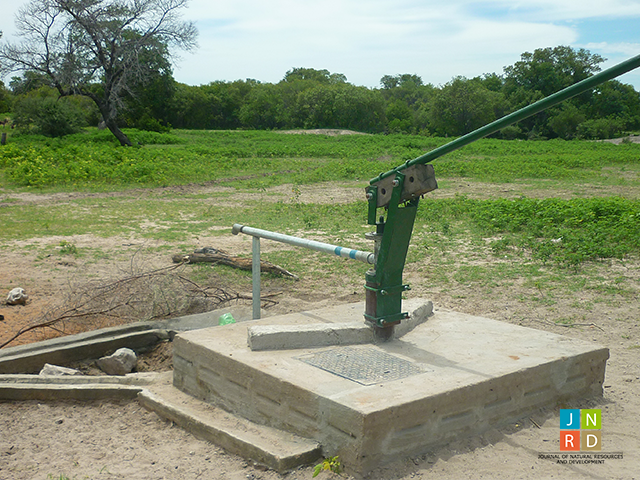Household Drought Risk Index (HDRI): Social-Ecological Assessment of Drought Risk in the Cuvelai-Basin
Main Article Content
Abstract
Droughts threaten many regions worldwide, in particular semi-arid environments of sub-Saharan Africa such as the Cuvelai-Basin in Angola and Namibia, as the population depends on critical water-related ecosystem services. Since droughts are multi-layered phenomena, risk assessment tools that capture the societal relations to nature and identify those individuals that are most threatened are required. This study presents the integrated Household Drought Risk Index (HDRI) that builds upon empirical data from the study area to provide insights into drought hazard and vulnerability conditions of households in different socio-economic and environmental settings. The composite indicator integrates environmental measures of drought (frequency, severity, duration) from multiple remote sensing products (precipitation, soil moisture, vegetation) and the vulnerability of households (sensitivity, coping capacity) obtained from a structured survey that comprised 461 households. The results reveal that the Angolan population shows higher levels of risk, particularly caused by less developed infrastructural systems, weaker institutional capabilities and less coping capacities. Overall, urban dwellers follow less drought-sensitive livelihood strategies, but are still connected to drought conditions in rural areas due to family relations with obligations and benefits. The study results provide knowledge for decision-makers to respond to drought in the short and long-term. The latter may build upon the extension of centralized and decentralized water and food supply/production systems as well as the support of households via targeted educational and community-building measures. Specific HDRI components may be included in census surveys to receive continuous drought risk data.
Article Details
Issue
Section

This work is licensed under a Creative Commons Attribution-NonCommercial-NoDerivatives 4.0 International License.

